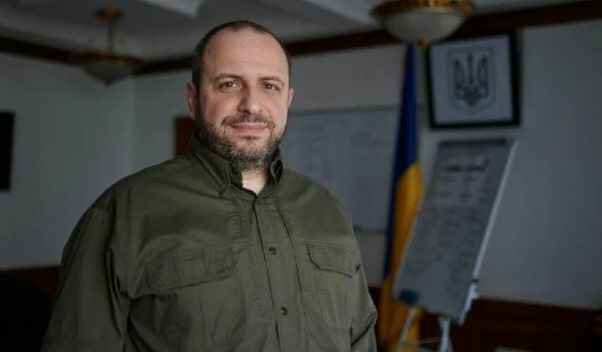Ukraine’s intel: Putin begins active preparation for confrontation with Europe, US, and NATO
Following recent elections, Putin actively prepares for confrontation with Europe, NATO, and the US, with unchanged plans to fully occupy Luhansk and Donetsk oblasts in Ukraine, signaling an aggressive foreign policy stance, according to Ukrainian intelligence.

Russian President Vladimir Putin has initiated active preparations for potential confrontation with Europe, NATO, and the US following recent elections in Russia, according to Vadym Skibitskyi, a Ukrainian military intelligence representative, Liga reports.
According to Skibitskyi, Russia’s plans and strategy regarding Ukraine remain unchanged – the enemy primarily aims to occupy the entirety of Luhansk and Donetsk oblasts. He noted that this could be observed following the advance of the Russian army.
Skibitsky stated that following the March sham presidential elections, where he retained the presidential seat, Putin has concentrated on pursuing an aggressive foreign policy.
“Active preparations for a possible confrontation with Europe, NATO, and the United States have already begun at the level of statements. All efforts will now be focused on this,” the intelligence officer emphasized.
- In January, Latvian Defense Minister Spruds and his counterparts from Lithuania’s Anušauskas and Estonia’s Pevkur signed an agreement to establish a Baltic Defense Line to strengthen the region’s eastern border with NATO.
- In February, Estonia’s Foreign Minister Margus Tsahkna stated that NATO has approximately three to four years to bolster its defenses as Russian President Vladimir Putin intensifies his country’s “war machine.”
- Lithuanian Army Commander-in-Chief Valdemaras Rupšys said he sees no threat of war between Russia and NATO next year.
- After signing a bilateral defense and cooperation agreement with France, Moldova’s President Maia Sandu cautioned that Russia would pose a threat to the rest of Europe if it prevails in Ukraine.
- In late March, Spanish Minister of Foreign Affairs José Manuel Albares said that neither the European Union, nor NATO, nor Spain is preparing for any war despite the threat from Russia and the war it has unleashed against Ukraine.
- Meanwhile, Polish President Andrzej Duda called for NATO to urgently boost defense spending to 3% amid concerns of a potential Russian attack in the coming years, with Poland already spending 4% of its GDP on defense, surpassing the US.
- Polish Prime Minister Donald Tusk described the current period as the most critical since WWII, urging the EU to arm itself and spend 2% of GDP on defense. He emphasizes the importance of protecting Ukraine from Russian invasion and maintaining its independence.
According to Business Insider, a classified German intelligence report circulating in the federal government warns of a significant Russian military buildup that could enable an attack on NATO territory starting in 2026 after doubling conventional weapons capabilities..
Read also:
- Polish president says NATO must urgently ramp up defense spending
- Zelenskyy: Russia won’t stop in Ukraine, will target Kazakhstan, Baltic states, Poland, Germany next
- Spanish Foreign Minister: Neither EU, NATO, nor Spain prepares for war despite Russia’s aggression in Ukraine
- Russia’s gamble: how and why it could attack NATO countries. Ex-NATO official explains


